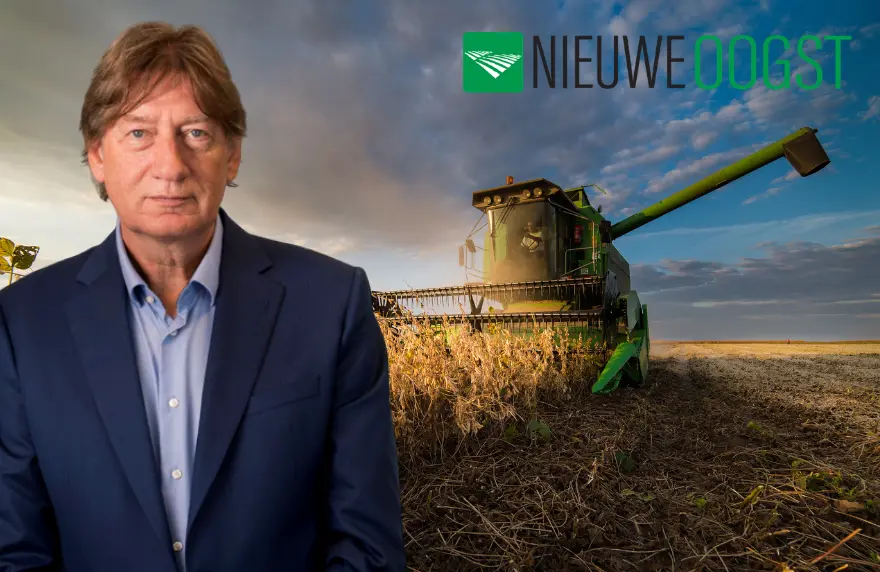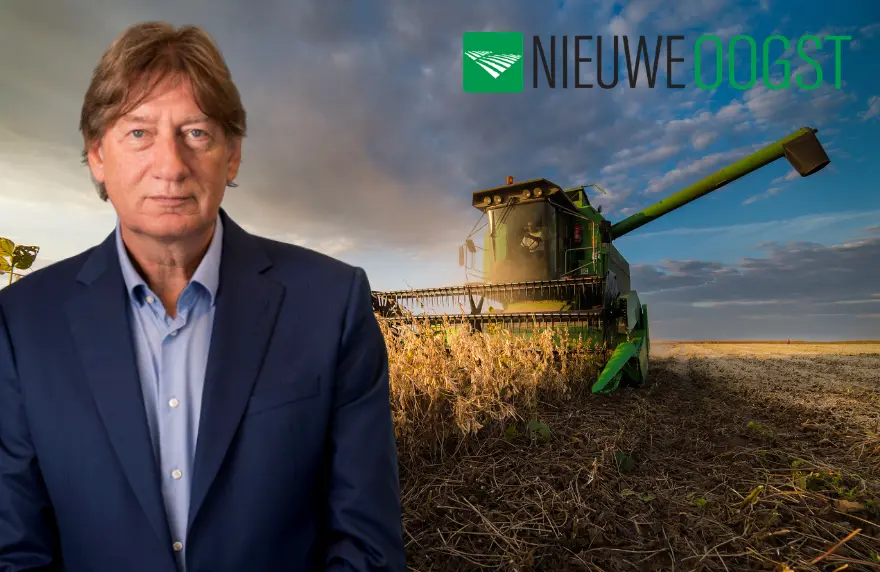Opeens is voedsel geopolitiek. Dat werd in april duidelijk toen President Poetin zijn regering de opdracht gaf om de export van voedsel aan ‘onvriendelijke landen’, zeg maar alle landen die Oekraïne actief steunen, te ‘monitoren’. Volgens hem zouden door kunstmesttekorten de landbouwopbrengsten in de wereld, ook in Rusland, gaan dalen. Dus moet zijn regering waakzaam zijn dat die exporten aan onvriendelijke landen zo nodig worden verminderd of gestaakt.
Dat er een probleem met de mondiale voedselvoorziening is, is inmiddels wel duidelijk. Als gevolg van toegenomen transportkosten en dure kunstmest stijgen de prijzen onrustbarend, hoewel van absolute schaarste nog geen sprake is.
Die prijsstijging zal de komende tijd alleen maar doorgaan. Want dit voorjaar kan in Oekraïne slechts 31 procent van het beschikbare areaal worden ingezaaid. Dat is logisch omdat 30 procent van de landbouwgrond in oorlogsgebied ligt, boeren naar het front afreizen en de regering transportmiddelen ten behoeve van de strijd tegen Rusland vordert.
Het cynische van Poetins oekaze is dat hij zelf verantwoordelijk voor de ellende is. Hij begon de oorlog, terwijl Rusland en Oekraïne samen goed zijn voor 30 procent van de mondiale export van tarwe; 20 procent van mais; en 80 procent van de producten die met zonnebloempitten worden gemaakt.
Als gevolg van Westerse sancties en de Russische blokkade van belangrijke havensteden als Mariupol en Odessa kan 25 miljoen ton graan het land niet verlaten. President Zelenski riep de Russen daarom op om de haven van Odessa niet langer af te sluiten en de export op gang te brengen. Zo niet dan dreigt een mondiale voedselcrisis.
Die zal het hardste toeslaan in Afrika. Al voor de oorlog schatte de VN in dat voor 161 miljoen mensen in 42 landen acute honger dreigt. Maar door deze oorlog wordt de situatie pas echt onbeheersbaar. Dit wordt versterkt doordat Rusland drukdoende is tarwe en landbouwwerktuigen uit Oekraïne te stelen.
De oorlog dwingt ons strategischer na te denken over onze voedselvoorziening. Verstoringen in de ketens blijken grote gevolgen te hebben. Het feit dat de productie in een aantal gevallen relatief geconcentreerd is, speelt daarbij ook een rol.
Tarwe komt vooral uit zeven grote gebieden: Argentinië, Australië, Canada, de EU, Oekraïne, Rusland en de VS. De grootste hoeveelheid mais komt uit slechts vier landen: Argentinië, Brazilië, Oekraïne en de VS. Voor de kunstmestvoorziening is Europa bovendien sterk afhankelijk van kali uit Rusland en Belarus.
Als ik dit allemaal op mij laat inwerken, dan moet ik steeds denken aan al die mooie ideetjes over lokale productie en lokale consumptie. Sommige reclames spelen in op dit gevoel. Maar dit soort ideeën klinken ook in de Europese Commissie waar Janusz Wojciechowski, de Poolse landbouwcommissaris, er ook nogal van gecharmeerd schijnt te zijn.
Het klinkt allemaal mooi en aantrekkelijk, maar het is pure romantiek.
De oorlog laat zien dat voedselvoorziening een mondiaal systeem is. Als de bevoorradingketens worden verstoord, leidt dat tot prijsstijgingen en hongersnoden. Hongersnoden zullen hier niet zo snel plaatsvinden, maar dat prijsstijgingen ook in Europa tot sociale onlusten leiden, lijkt wel duidelijk. Het gaat helemaal mis als voedsel of grondstoffen als politiek pressiemiddel of wapen wordt gebruikt. Precies dat beoogde Poetin met zijn oekaze.




